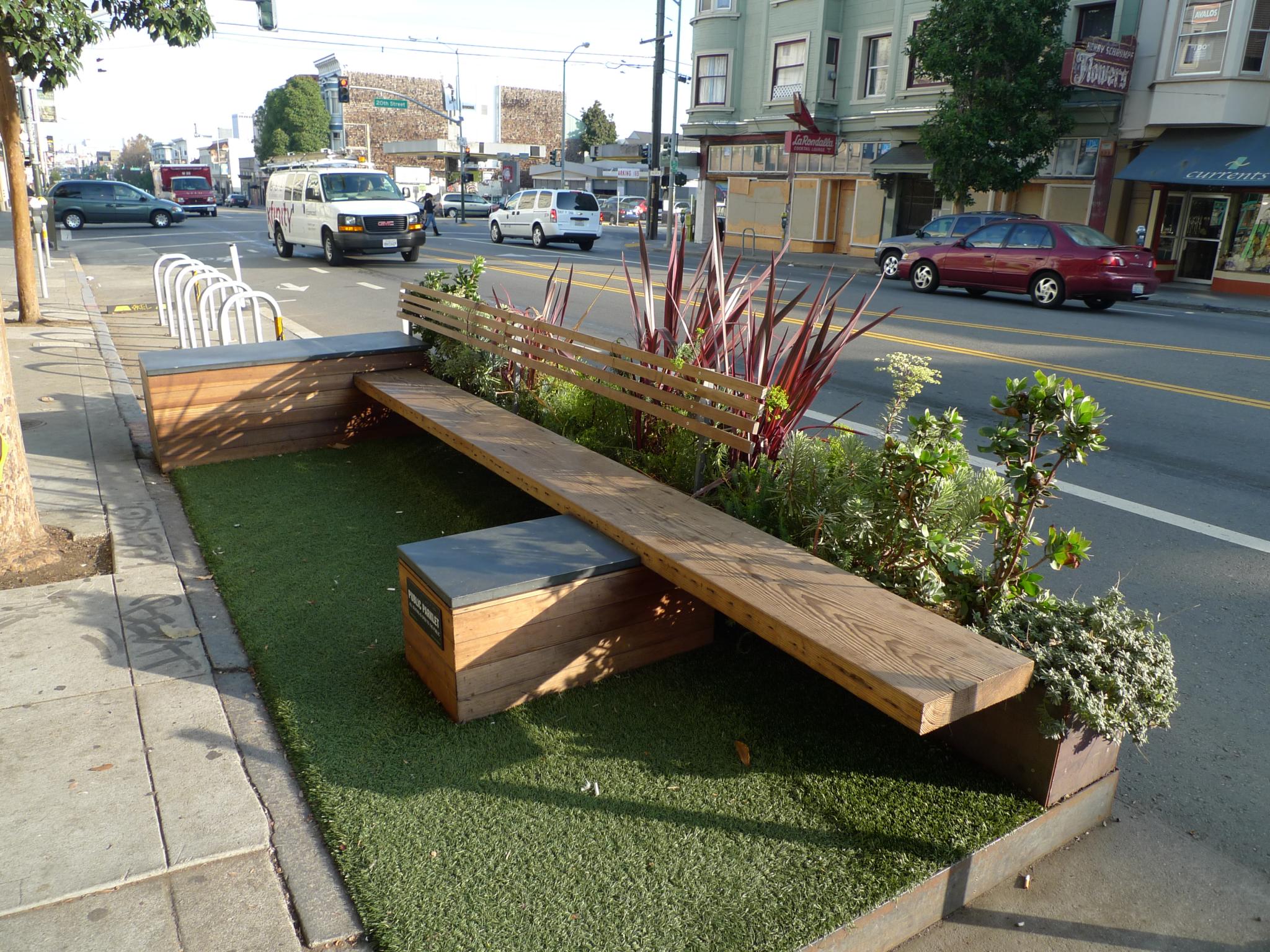Bittner has a few theories about San Diego’s parklet problem. For one, their price – anywhere from $15,000 to $50,000, he said – chases off business owners who show interest. But he also said San Diego’s car-centric culture doesn’t help, and the city doesn’t make it easy to build them.
Last summer, the city announced it was taking what it learned during the two-year pilot program and releasing an official parklet permitting policy. It hoped this would make it easier for business owners to pursue them.
The city insists on calling parklets “pedestrian plazas” due to what it says are liability concerns. Business owners pay for design and construction of the project plus around $3,000 in permitting fees, and carry $1 million in liability insurance. The business owner also needs approval of a majority of nearby property owners.
Cody Burkholder works at Moniker Group, an arts-focused investment company and design firm in East Village that hired local architect Rob Nelson to design a parklet for space outside its warehouse on 16th Street. Burkholder said Nelson had trouble navigating the city’s rules before he passed away last year.
“It was quite difficult,” Burkholder said. “The idea was for it to be a quick project, but nobody really understood all the potential setbacks and the going back and forth with the city.”
The city ultimately approved the project, and Burkholder thinks it could be finished by June.
Other parklets, like one planned for Super Cocina in City Heights and a few in Little Italy, have stalled but are still in the works. One proposed parklet in Golden Hill got shut down after nearby property owners wouldn’t consent to the lost parking spaces.
Elizabeth Studebaker, who works in the city’s economic development department and helped create the city’s parklet program, said the city will work kinks out as it builds more parklets.
“We didn’t have a ton of examples to work with since only two went through the pilot program,” she said.
Studebaker said the city looked at dozens of cities’ parklet policies to create its standards. She said the process is slow because every parklet is so different, with designs and street conditions that have to meet a series of accessibility and safety standards.
To reduce costs for businesses, she said, the city lumped parklets into its storefront improvement program, which pays half of costs up to $8,000.
Beryl Forman, who runs marketing at the El Cajon Boulevard Business Improvement Association, thinks the city needs to do more to promote the program. Forman helped get the city’s second parklet in front of Mama’s Bakery & Lebanese Deli in North Park built and said her experience with the city was painful.
“There was lots of back and forth with the planning department until they thought everything was perfect,” she said.
Forman said the city could emulate San Francisco’s Pavement to Park program, which speeds up the process by getting directly involved and working out technical problems.
“There’s this new wave of business owners in San Diego who are willing to invest in these type of opportunities,” she said. “But the city could have more of a user-friendly placemaking program where they were more behind it and investing in it.”
Bittner said he’s talked to folks who’ve built parklets in other cities and their experiences sound much smoother than his.
“San Diego is such a weird city,” he said. “For one thing, the fact that they have to call them pedestrian plazas and won’t call them parklets strikes me as odd. They’re parklets – just call them what they are. And in other places you see them all over the place, so how are the other cities doing them and why are we so far behind the curve?”
[divider] [/divider]
Originally posted at Voice of San Diego.




